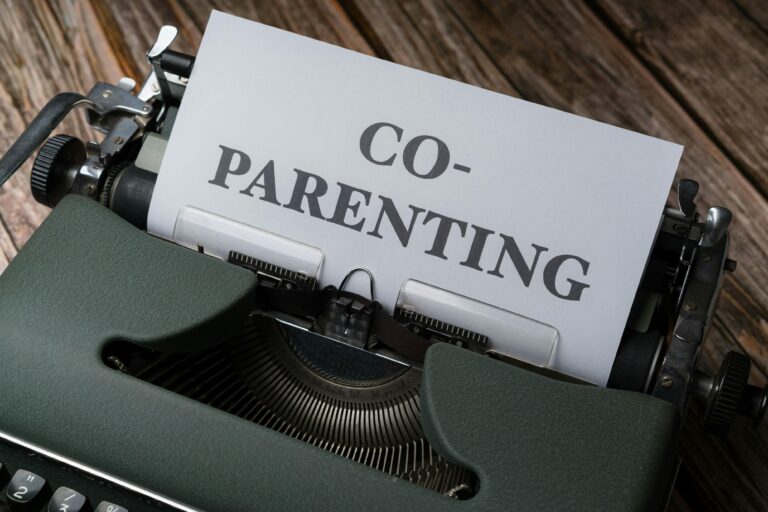Growing up, we all look to our parents for love, guidance, and support. But what happens when the very people meant to nurture us instead twist our reality, making us question our own feelings and memories? Gaslighting from a parent is a painful and often confusing experience that can leave deep emotional scars. If you’ve ever felt like your truth was dismissed or manipulated by a parent, you’re not alone—and it’s important to recognize these patterns so you can begin to heal. In this article, we’ll explore what parental gaslighting looks like, how to identify it, and ways to reclaim your sense of self and move forward with compassion and strength.
Table of Contents
- Understanding the Subtle Signs of Parental Gaslighting
- The Emotional Toll and Long-Term Impact on Adult Children
- Practical Steps to Rebuild Trust and Set Healthy Boundaries
- Finding Support and Resources to Guide Your Healing Journey
- The Conclusion
Understanding the Subtle Signs of Parental Gaslighting
Parents usually hold a place of trust and authority in our lives, which is why the subtle manipulation through gaslighting can be so difficult to pinpoint. It often starts with dismissive remarks that downplay your feelings or experiences, leaving you questioning your own memory or judgment. You might hear things like, “You’re just being too sensitive,” or “That never happened, you’re imagining things.” This persistent invalidation isn’t always loud or obvious—it can be hidden in everyday conversations, embedding doubt and confusion deep within your sense of reality.
Recognizing these subtle signs is the first step towards reclaiming your truth:
- Repeatedly being told you’re overreacting to situations that genuinely upset you.
- Feeling isolated because your perspective is consistently invalidated or mocked.
- Experiencing a growing sense of self-doubt or questioning your own memories.
- Being made to feel guilty for expressing emotions or boundaries.
Understanding these patterns helps you break free from the psychological grip that distorts your sense of self. Awareness empowers you to seek support, set boundaries, and begin the healing journey—knowing your reality is valid and your feelings deserve respect.
The Emotional Toll and Long-Term Impact on Adult Children
Living under the shadow of a parent’s gaslighting leaves deep emotional scars that often persist into adulthood. Many adult children struggle with chronic self-doubt, finding themselves constantly second-guessing their own feelings and memories. This persistent questioning can erode self-esteem, leading to difficulties in trusting not only their own intuition but also the people around them. Over time, these emotional wounds may manifest as anxiety, depression, or an overwhelming sense of isolation, as the reality they were told to believe conflicts with their authentic experience.
Healing requires recognizing the ripple effects gaslighting has had on one’s emotional and mental health. Adult children often wrestle with patterns such as:
- Difficulty establishing firm boundaries with others
- Fear of confrontation or expressing needs
- Recurring feelings of guilt or shame tied to past interactions
- Challenging interpersonal relationships due to trust issues
Understanding these long-term impacts is a crucial step toward reclaiming one’s sense of self and fostering healthier relationships moving forward.
Practical Steps to Rebuild Trust and Set Healthy Boundaries
Rebuilding trust after experiencing manipulation or gaslighting from a parent requires patience and intentionality. Start by acknowledging your own feelings and validating your reality, which might have been dismissed for so long. Setting healthy boundaries is crucial—this involves clearly defining what behaviors you will no longer tolerate and communicating these limits assertively. It’s okay to say “no” or to step back from interactions that feel emotionally harmful. Remember, boundaries are not walls but bridges to healthier relationships based on mutual respect.
To support your healing journey, consider practical actions such as:
- Journaling your experiences and emotions to gain clarity on patterns and triggers.
- Seeking support from a therapist who understands family dynamics and gaslighting.
- Engaging in self-care routines that reinforce your sense of worth and autonomy.
- Practicing mindful communication, where you listen deeply but also express your truth without guilt.
Embracing these steps fosters inner strength, helping you reclaim your voice and create relationships where trust can gradually be nurtured in a healthy and balanced way.
Finding Support and Resources to Guide Your Healing Journey
Recognizing that you need support is a powerful first step toward reclaiming your emotional well-being. Healing from parental gaslighting often requires more than personal reflection; it involves building a network of understanding individuals and professional guidance. Reach out to trusted friends, join support groups—both online and local—and seek therapists who specialize in emotional abuse and family dynamics. These connections provide safe spaces to share your experiences, validate your feelings, and learn coping strategies tailored to your unique journey.
Practical resources to consider include:
- Books and workbooks on gaslighting and emotional abuse recovery
- Therapists offering trauma-informed counseling or cognitive-behavioral therapy
- Community support groups, such as those on Reddit or dedicated Facebook pages
- Helplines you can call when feeling overwhelmed or isolated
- Educational podcasts and webinars focusing on healing from family-related emotional abuse
Remember, the right resources can illuminate your path forward and remind you that you are not alone. Healing is a gradual process, but with compassionate support, you can rebuild your sense of self and begin to thrive beyond the damage caused by gaslighting.
The Conclusion
Healing from gaslighting by a parent is never easy, but recognizing the signs is the first powerful step toward reclaiming your truth and your peace. Remember, you are not alone—and your experiences are valid. It’s okay to seek support, set boundaries, and prioritize your emotional well-being. With time, compassion, and patience, you can begin to rebuild trust in yourself and nurture the healthy relationships you deserve. Your journey toward healing is a brave and beautiful one, and every step forward is a testament to your strength. Keep believing in your worth—you are worthy of love, respect, and genuine understanding.

